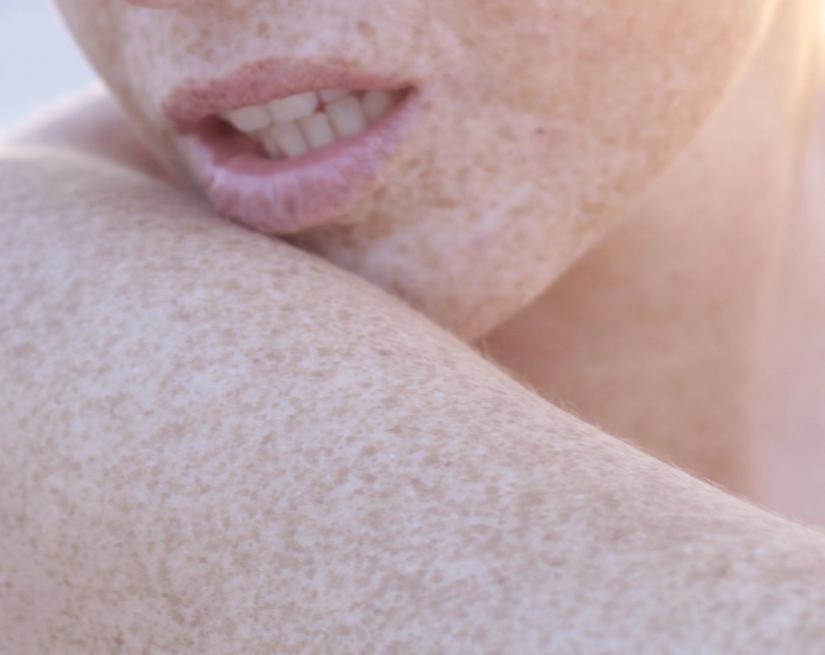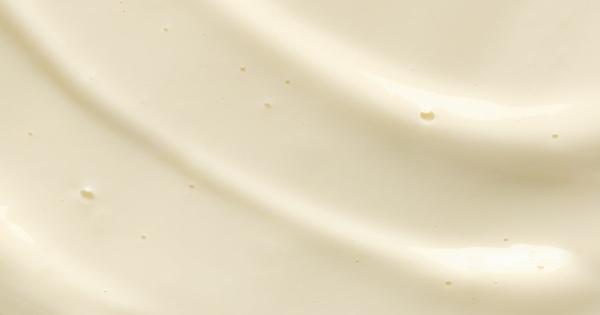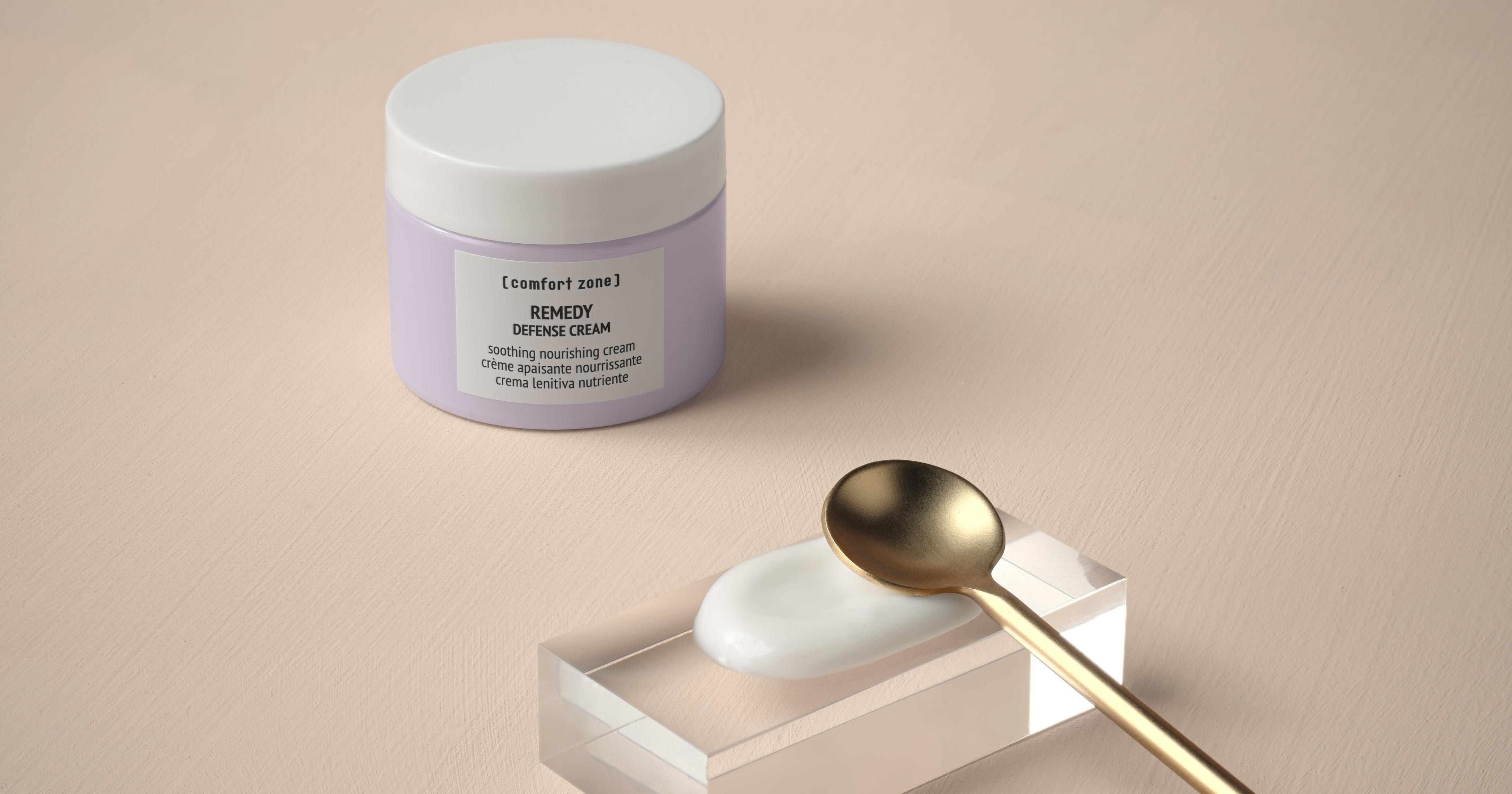Remedy Cream To Oil
Ultra gentle cleanser
skin care
Maria Giulia Simonazzi | International Training Manager
10 min read

Sensitive skin can be a frustrating and uncomfortable condition that affects people of all ages. You may not even know you have sensitive skin until your skin has a negative reaction to a certain skin care product or ingredient. In fact, over 60% of women and 40% of men have reported some degree of skin sensitivity. There are many causes that lead to skin sensitivity, although there is no reliable diagnostic test. Not everyone will respond to irritants in the same way. Studies have even shown that different ethnic groups respond differently with less or more reactivity depending on the product. While sensitivity may vary among different cultures and regions, it is agreed upon that sensitive skin affects a large portion of the population.
Sensitive skin can be the result of using certain cosmetics, skincare products, soaps, or lotions. It can be characterized as any unpleasant sensory response, such as itching, burning, stinging, or dryness that is consistent. While it may be difficult to define the direct cause, it is possible to cure and treat sensitive skin.
Many often correlate sensitive skin with dry skin, however, they are not the same. While you may experience both, dry skin is a permanent skin type, whereas sensitive skin is often the symptom of another condition.
Below, we are explaining more about sensitive skin, the symptoms to look out for, plus tips on how to care for it.
"It's very important to heed the call when your skin is letting you know that it is compromised. Through signals like burning, small red bump, your goal should change from whatever your focus has been to bring calm to your skin. Switching to a non-foaming, fragrance-free cleanser and a nourishing cream is the best bet for calming the skin. Along with a pause in exfoliating, these steps will help your skin quickly recover its barrier function and feel more soothed, keeping you from battling a more volatile irritation.!"
Christine Lee - Comfort Zone Master Educator
While your skin can be both sensitive and dry, there is a difference. Dry skin occurs when the top layer of your skin dries out due to a lack of moisture. It can be caused by genetics, age, environmental factors, or harsh products. The common reason why someone may have dry and sensitive skin is due to a compromised skin barrier. When the barrier lacks moisture, it is unable to protect itself from external irritants. Dry skin may feel itchy or rough, while sensitive skin may burn or sting after using certain products.
Other symptoms of dry skin include:
To treat dry skin, you will want to focus on rehydrating the skin by helping it retain moisture. Use a hydrating moisturizer with ingredients like hyaluronic acid or niacinamide. For those with sensitivity, try using a moisturizer or cleanser with no fragrances. Stay away from alcohol and menthol (makeup wipes), don’t overdo the exfoliation, and use a humidifier to maintain good air quality. If the skin continues to stay dry with consistent hydrating, it may be helpful to consult with a dermatologist.

While sensitive skin is quite common, the symptoms of it can present themselves in various ways among different people. Women tend to experience sensitive skin more than men. This can be because women tend to have thinner skin than men. Women also use more products than men, which can lead to the skin becoming more exposed to irritants. Those with sensitive skin may notice frequent itching, burning, stinging, or a strong discomfort after using a certain skincare product, makeup, sunscreen, or even detergent. In simple terms, sensitive skin is skin that is easily irritated by products that should not normally cause a reaction.
Sensitive skin is caused by the top layer of skin becoming irritated. This irritation occurs when the skin’s natural barrier becomes weakened. This sensitivity can be because of topical products or from environmental conditions like extreme weather or wind. If you’re wondering why your skin responds to certain products or ingredients, one of the following causes may play a part.
Eczema is a condition that causes the skin to flare up, causing inflammation, itchiness, and rough patches. You may notice eczema most frequently on your hands, neck, elbows, face, lips, feet, and knees. The severity of eczema varies from person to person, but common symptoms include:
There are a few measures you can take to help treat eczema. One of the most important things you can do to manage eczema is to keep the skin hydrated. You should moisturize the skin at least twice a day with gentle or sensitive products. Look for products that are fragrance and dye free, and have lipids or ceramides that improve the skin’s barrier. You can also apply topical steroids or take oral medications if prescribed by your dermatologist.
Allergic contact dermatitis occurs when you have a reaction to a specific allergen, substance, or chemical. This triggers your immune system to respond in a way that affects the skin. This reaction can be from lotions, soaps, cleansers, detergents, or other cosmetics. If experiencing contact dermatitis, the reaction will occur 24 to 48 hours after exposure. Common symptoms of these allergic reactions include:
To protect your skin from another allergic reaction in the future, you should avoid exposure to the substance. When treating allergic contact dermatitis, wash the area with lots of water to remove any traces of the allergen. You should also use gentle moisturizers to keep the skin moist, as well as help the skin repair itself.
Oftentimes, those who experience irritant contact dermatitis will only develop a rash on the part of the skin that came into direct contact with the irritant. While rashes will clear up on their own in most cases, there are ways to speed up the healing process. To protect and repair the skin barrier, use topical anti-itch creams. This will reduce inflammation and help keep the itching at bay. While your skin heals, stay out of the sun and always use SPF.
Dry skin is due to water loss from the outer layer of the skin. You might experience dry skin breakouts because of heat, environment, new products, or harsh lotions. Symptoms of dry skin include:
The location of where dry skin forms varies from person to person. There is a lot you can do to improve your dry skin. Moisturizing and using SPF will help moisturize the skin and protect it from harmful UV rays. Use a gentle cleanser that is hypoallergenic and paraben free. Retaining moisture in the skin is important, so be sure to also stay hydrated. Water has a big impact on your skin.
Photodermatosis is caused by an abnormal skin reaction to sunlight, usually from harmful UV rays. Rash, blisters, or irritated skin may be the result of photodermatoses, but other symptoms include:
If your skin is overly sensitive to sunlight, you will need to take the proper steps to ensure your skin is protected. Apart from skin sensitivity, sun exposure can lead to more pesky skin discoloration conditions like melasma and sun spots. Always apply a sunscreen of 30 SPF or higher. When washing your face or body, use a gentle exfoliator so as not to damage the skin barrier.
Rosacea is a skin disease that causes extreme skin sensitivity. It mainly affects the face but can spread to the neck and chest depending on the severity. Using certain cosmetic products may cause a stinging sensation or burning, but other symptoms include:
Rosacea is often caused by a specific trigger, such as sun exposure, exercise, or even hot beverages. Long-term treatment includes prescribed creams from a dermatologist, but there are small steps you can include in your skincare routine to help your rosacea maintenance. Try incorporating a color-correcting primer to reduce redness before applying your makeup. You can also choose a moisturizer that combats redness and protects skin from irritation.

Rosacea is often caused by a specific trigger, such as sun exposure, exercise, or even hot beverages. Long-term treatment includes prescribed creams from a dermatologist, but there are small steps you can include in your skincare routine to help your rosacea maintenance. Try incorporating a color-correcting primer to reduce redness before applying your makeup. You can also choose a moisturizer that combats redness and protects skin from irritation.
Consider adding some of Comfort Zone’s natural cleansers, toners, and moisturizers to your daily skincare routine. Remember to go slow and keep track of what your skin reacts to.
If you still see little to no improvement with sensitive skin after these steps, you may want to consult a dermatologist to rule out any larger underlying conditions. A topical steroid cream may be prescribed to treat more severe skin sensitivities, like eczema or rosacea. A dermatologist can help set your skin up for success since each person has different needs.
Those struggling with sensitive skin can feel a sense of frustration, especially when it feels like everything leaves your skin feeling irritated. But there are simple steps you can make each day to help manage it:
There can be a lot of unpleasantness that comes from having sensitive skin, but there are ways to manage it effectively. Be careful with the products you select, being sure to choose high quality, natural, gentle options, like the ones from Comfort Zone. Finding skincare products that work for you may take time, but Remember, keeping sensitive skin happy doesn’t have to be hard. Sometimes the most effective skincare routine is often the simplest.

Ultra gentle cleanser
Face eye lip make-up remover
Soothing refreshing toner
Soothing fortifying serum
Soothing hydrating cream